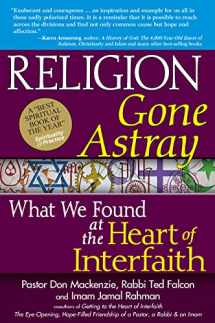
Religion Gone Astray: What We Found at the Heart of Interfaith
Book details
Summary
Description
Welcome to the deeper dimensions of interfaith dialogue―exploring that which divides us personally, spiritually and institutionally.
"We believe that interfaith dialogue holds the key to a healing that calls us back to purpose and to meaning. We have risked confronting aspects of our traditions usually hidden, and the consequences have been deeply life-affirming. We risk becoming vulnerable as we share awkward and even unacceptable texts and interpretations, but it is this very vulnerability that allows our dialogue to move forward."
―from the Introduction
Expanding on the conversation started with their very successful first book, the Interfaith Amigos―a pastor, a rabbi and an imam―probe more deeply into the problem aspects of our religious institutions to provide a profound understanding of the nature of what divides us. They identify four common problem areas in the Abrahamic faiths:
- Exclusivity: Staking Claim to a One and Only Truth
- Violence: Justifying Brutality in the Name of Faith
- Inequality of Men and Women: The Patriarchal Stranglehold on Power
- Homophobia: A Denial of Legitimacy
They explore the origins of these issues and the ways critics use these beliefs as divisive weapons. And they present ways we can use these vulnerabilities to open doors for the collaboration required to address our common issues, more profound personal relationships, and true interfaith healing.


We would LOVE it if you could help us and other readers by reviewing the book
Book review



